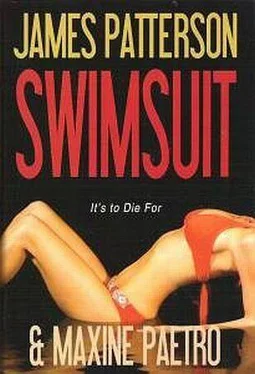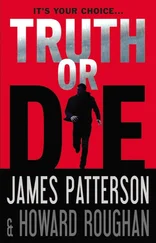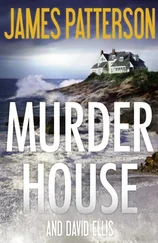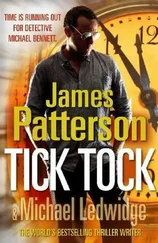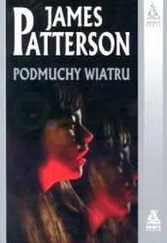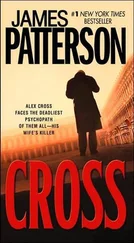The car I was riding in braked, wheels shimmying on ice and gravel, the heavy vehicle sliding to a stop at the foot of a stone wall. The wall fronted a fortresslike compound built into the side of a hill.
Car doors opened and slammed, radios chattered. Armored commando units flanked us, dozens of men in flak jackets who were armed with automatic weapons, grenade launchers, and high-tech equipment I couldn't even name.
Fifty yards away, across a snowy field, glass shattered. A window had been knocked out in a corner room of the villa. Bullets flew, and grenades boomed as they exploded inside the target area.
Under covering fire, a dozen agents charged the villa, and I heard the rumble of snow cracking loose from the steep grade behind Horst's stronghold. There was shouting in German, more small-arms fire, and I visualized Horst Werner's dead body coming out on a stretcher, the final act of this takedown.
With Horst Werner dead, how would we find Henri?
The massive front door opened. The men who were leaning against the wall aimed their weapons.
And then I saw him.
Horst Werner, the terror who Van der Heuvel had described as a man with long arms and steel fists, “the last man you'd ever want to meet,” came out of his house of stone. He was barrel-chested, with a goatee and gold wire-framed glasses, and he wore a blue overcoat. Even with his hands folded on top of his head, he had a confident “military” bearing.
This was the twisted man behind it all, the master voyeur, the murderer's murderer, the Wizard of some hellacious, perverted Oz.
He was alive, and he was under arrest.
Horst Werner was bundled into an armored car, and Swiss cops piled in behind him. I went with two Interpol investigators in another. An hour after the takedown, we arrived at the police station in Bern, and the questioning of Horst Werner began.
I watched anxiously from a small observation chamber with a window onto the interrogation room.
As Werner waited for his lawyer to arrive, his face streamed with sweat. I knew that the heat had been turned up, that the front legs of Werner's chair were shorter than the back, and that Captain Voelker, who was questioning him, was not getting much information.
A young officer stood behind my chair and interpreted for me. “Herr Werner says, 'I do not know Henri Benoit. I haven't killed anyone! I watch, but I do nothing.' ”
Captain Voelker left the interrogation room briefly and returned holding what looked like a CD. Voelker spoke to Werner, and my interpreter told me that this disc had been found inside a DVD player, along with a cache of other discs in Werner's library. Werner's face stiffened as Voelker inserted the disc into a player.
What video was this? The Gina Prazzi murder? Maybe some other killing by Henri?
I angled my chair so that I could see the monitor, and I took a deep breath.
A man's bowed head came on the screen. I could see him from the crown of his skull to the middle of his T-shirt. When he lifted his swollen and bloodied face, he turned away from the camera, away from me.
From the one brief glimpse, the man looked to be in his thirties and had no distinguishing features.
An interrogation was clearly in progress. I felt the most extreme tension as I watched. Off camera, a voice said, “ Onnn-reee, say the words.”
My heart jumped. Was it him? Had Henri been caught?
The bloodied prisoner said to his questioner, “I'm not Henri. My name is Antoine Pascal. You've got the wrong man.”
“It's not hard to say, is it, Henri?” asked the voice from the wings. “Just say the words, and maybe we will let you go.”
“I tell you, I'm not Henri. My identification is in my pocket. Get my wallet.”
The interrogator finally came into view. He looked to be in his twenties, dark-haired, had a spiderweb tattooed on his neck and the inked netting continued to his left cheek. He adjusted the camera lens so that there was a wide shot of the bare, windowless room, a cellar lit by a single bulb. The subject was hog-tied to a chair.
The tattooed man said, “Okay, 'Antoine.' We've seen your ID, and we admire how you can become someone else. But I am getting tired of the game. Say it or don't say it. I give you to the count of three.”
The tattooed man held a long, serrated knife in his hand, and he slapped it against his thigh as he counted. Then he said, “Time is up. I think this is what you've always wanted, Henri. To know that moment between life and death. Correct?”
The voice I'd heard from the hostage was familiar. So was the look in his pale gray eyes. It was Henri. I knew it now.
Suddenly I was filled with horror as I realized what was going to happen. I wanted to shout out to Henri, express some emotion that I didn't understand myself.
I had been prepared to kill him, but I was not capable of this. I couldn't just watch.
Henri spit at the lens, and the tattooed man grabbed a hank of his brown hair. He pulled his neck taut. “Say the words!” he yelled.
Then he made four powerful sawing strokes at the back of Henri's neck with the knife, separating the screaming man's head from his shoulders.
Blood spurted and poured everywhere. On Henri. On his killer. On the camera lens.
“ Onnnn-reee. Henri. Can you hear me?” asked the executioner. He brought the severed head on a level with the camera.
I backed away from the glass, but I couldn't stop watching the video. It seemed to me that Henri was making eye contact with me through the monitor, through the glass. His eyes were still open – and then he blinked. He actually did that – blinked.
The executioner bent to the camera, his chin dripping sweat and blood, smiling with satisfaction, as he said, “Is everybody happy?”
Gorge rose in my throat, and I was trembling horribly, perspiring heavily. I suppose I was relieved that Henri was dead, but at the same time my blood was screaming through my arteries. I reeled from the sickening, indelible images that had been freshly branded on my brain.
Inside the silent interrogation room, Horst Werner's unfeeling expression hadn't changed, but then he looked up and smiled sweetly as the door opened, and a man in a dark suit came in, put a hand on his shoulder.
My interpreter confirmed what I'd guessed; Werner's lawyer had arrived.
The conversation between the lawyer and Captain Voelker was a short, staccato volley that boiled down to one unalterable fact: the police didn't have enough to hold Werner at this time.
I watched in shock as Werner strolled from the interrogation room with his lawyer, a free man.
A moment later, Captain Voelker joined me in the observation room, told me emphatically that it wasn't over yet. Warrants for Werner's bank and phone records had been obtained. Alliance members around the world would be squeezed, he said. It was just a matter of time before they had Werner locked up again. Interpol and the FBI were on the case.
I walked out of the police station on unsteady legs, but into clean air and daylight. A limo was waiting to drive me to the airport. I told the driver to hurry. He started the engine and raised the glass divider. But still, the car took off and maintained only a moderate speed.
Inside my mind, Van der Heuvel was saying, “Be afraid of Horst Werner” – and I was. Werner would find out about my transcripts of Henri's confession. It was admissible evidence against him and the Peepers. I had replaced Henri as the Witness, the one who could bring Werner and the rest of them down on multiple murder charges.
My brain sped across continents. I slapped at the divider, shouted to the driver, “Go faster. Drive faster.”
Читать дальше
